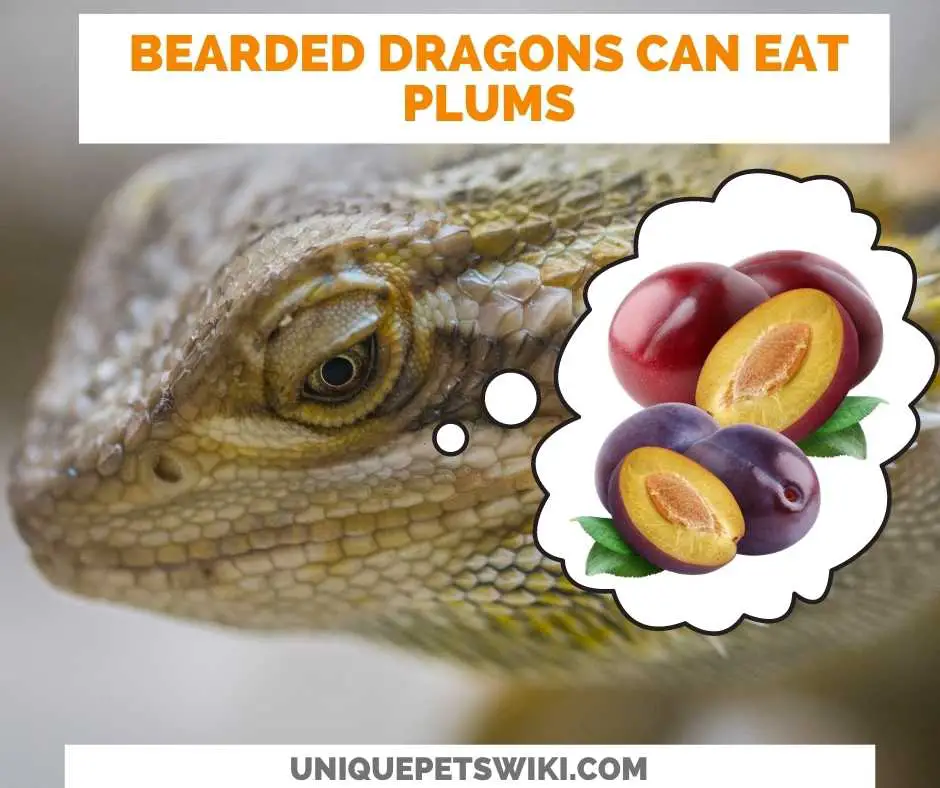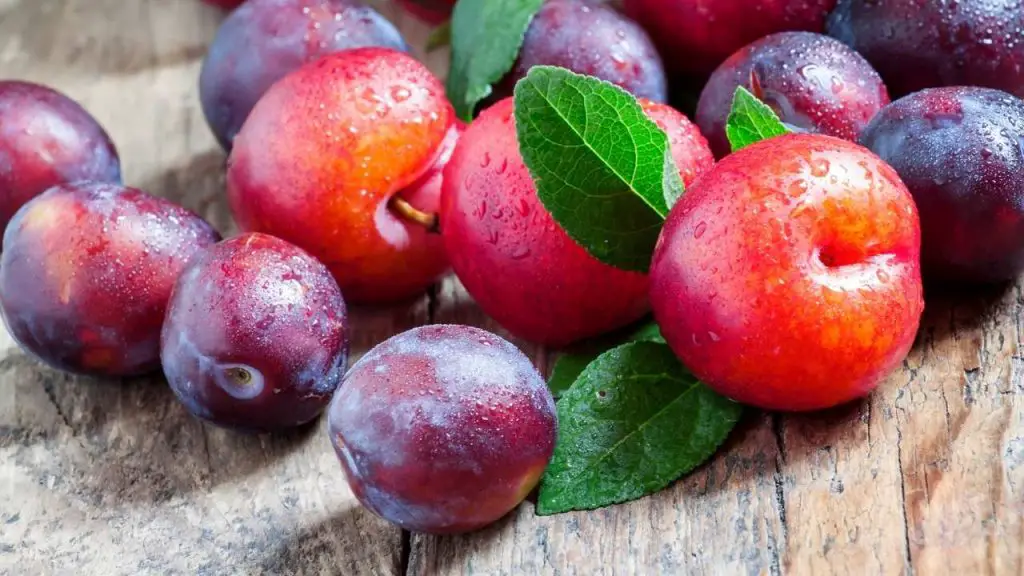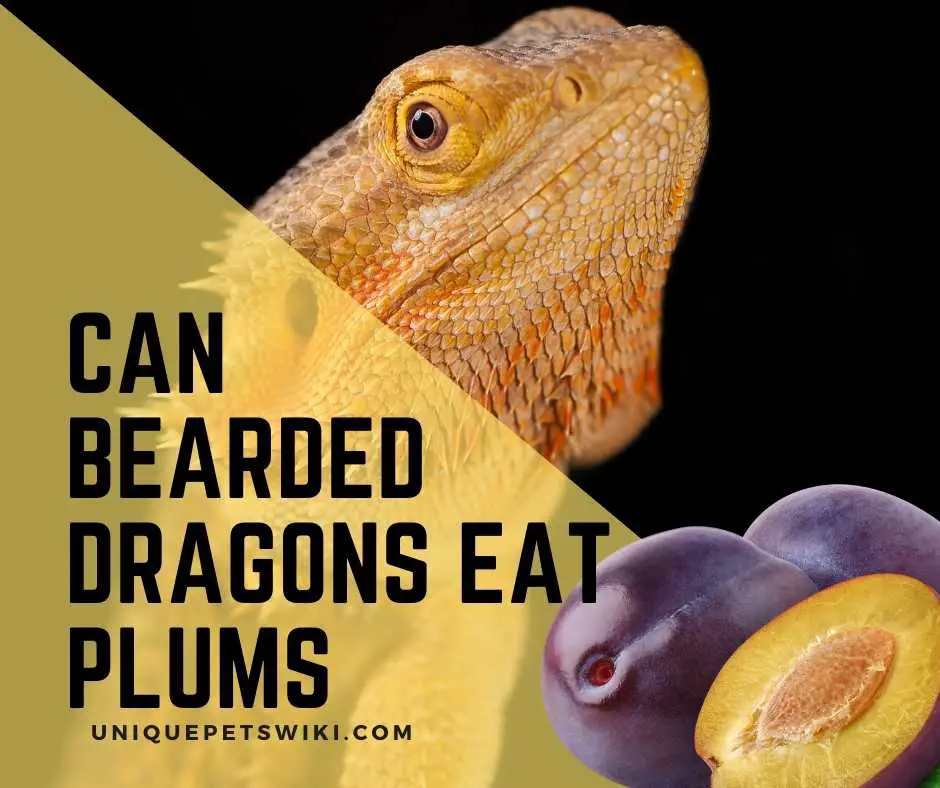These cute and small size balls, having a mixture taste of sour and sweet, are called plums. Plums are one of the most favorite fruits in the world.
In fact, some people grow them in their garden as they are full of nutrition. Plums are a superb source of vitamins and antioxidants.
They give relief in constipation and help to maintain blood pressure and sugar. But what about bearded dragons?
Do plums have the same effects on bearded dragons as humans? More importantly, can bearded dragons eat plums?
Most of the bearded owners come to us in trouble to solve these problems. So, we decided to solve one of the major problems regarding plums.
If the diet plan of your bearded dragon is bothering you and you face these questions regularly when feeding plums to your pet baby, then this blog post can help you out.
Keep reading till the end and get rid of this question: whether bearded dragons can eat plums?
This article has been reviewed by Dr. Dilber. Read more about our knowledge control process here.
Contents
Can Bearded Dragons Eat Plums?

Plums work fine for humans, but for bearded dragons, they don’t! Bearded dragons have a sensitive tummy, they are foodie but their stomach can’t take overload.
As for plums, it works exactly the same. Overdose of plums may disturb the stomach maintenance and digestive system.
To make it more clear, we are sharing a nutritional value chart of plums given by USDA. It shows the ratio and amount of nutrients.
Plums- Nutrition Information Chart:(100g)
| Name | Value | Unit |
| Water | 87.2 | g |
| Energy | 46 | kcal |
| Carbohydrates | 11.4 | g |
| Fiber | 1.4 | g |
| Sugar | 9.92 | g |
| Protein | 0.7 | g |
| Calcium | 6 | mg |
| Phosphorus | 16 | mg |
Explanation Of Calcium-Phosphorus Ratio:
Here, you can easily notice that plums have an inappropriate proportion of calcium and phosphorus. This makes plums a little acidic, which is not safe for bearded dragons. It may negatively affect your pet lizard’s health and cause metabolic bone disease.
Now, you can answer yourself if bearded dragons eat plums.
YES, beardies can eat plums as a sweet treat. Plums activate the taste buds. In wildlife, bearded dragons enjoy spending time on plum trees. It doesn’t mean you offer plums to your bearded pet dragon on a daily basis.
Plums can’t be offered as a regular diet because of its unbalanced ratio of calcium and phosphorus. This ratio may cause severe bone diseases and digestive diseases to your beardie.
How To Offer Plums To Bearded Dragons?

Sometimes the green salad bowl looks boring. You can add chopped plums into it. The bright color of plums will attract your beardie, and it’ll start eating green veggies with a sweet and sour taste.
Tip:
Wash the plums and cut them into bite-size pieces. You can also add its juice to the food bowl.
What Is Prunes?
Prunes are dried plums. However, they come from a different plant, not from the plum tree. Plums and prunes differ slightly from each other nutritionally.
Can Bearded Dragon Eat Dried Plums?
According to a few observations, bearded dragons like fresh plums. Dried plums or prunes are not favorable to them.
This choice may differ and depends upon your beardie’s choice. If you have a beardie who loves colorful foods and enjoys tutty fruity treats, plums are the best choice for it!
You can offer dried plums to check if your pet dragon can eat dried plums or not. If it doesn’t pick up dried plums, then don’t force your pet bearded to have it.
Is It Safe To Offer Prunes To Bearded Dragons?
Some bearded dragons find dried plums difficult to chew. Mostly adult beardies have weak or broken teeth. They can’t nibble dried plum. So if you have an adult beardie, it is better to avoid prunes.
Let’s Recap
- Bearded dragons can eat plums. It works best as a treat.
- Plums are sweet and sour and make a fine combo when mixed with green veggies.
- Even so, plums are beneficial fruits. They are enriched with antioxidants, vitamins, and minerals. But they have an unbalanced ratio of calcium and phosphorus. This disturbed ratio can be harmful if over-consumed. Therefore, plums should be offered occasionally.
